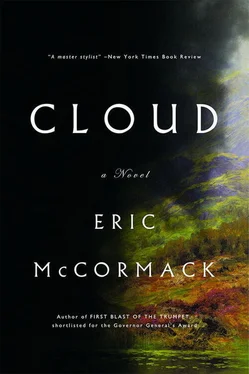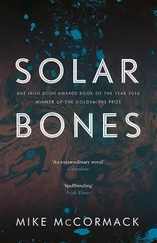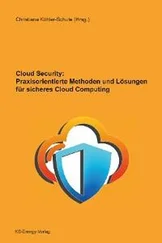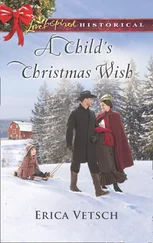Principal’s Of fice
Duncairn High School
Dear Mr. Steen: On the strong recommendation of Mr. Jacob Nelson, you are herewith of fered the position of interim teacher at Duncairn High School, conditional on the successful completion of your degree. Since school commences two months from now, I require an immediate response.
In the event of your acceptance, I suggest you come to Duncairn without delay and arrange accommodation here for the upcoming term. The most convenient way of travelling from Glasgow is by the daily two o’clock train for Carlisle, which has request stops at Duncairn station.
On your arrival, go straight to the school where you will receive travel reimbursement and a partial advance in salary. I will be in touch with you on the matter of your teaching duties.
In anticipation of your favourable response, I remain,
Sincerely, etc.
Samuel Mackay, Principal
I was surprised and delighted. I immediately mailed my acceptance. I thanked Jacob for persuading the principal to offer me the job — he and Deirdre were very happy at the news, too, but sorry I’d be leaving them. For me, the idea of going beyond the boundaries of the city for the first time in my life — of actually living in the countryside — was exciting. I wanted Jacob and Deirdre to tell me more about Duncairn. But they knew no more about it than I’d already discovered from a map. Namely, that it was one of the many small mining towns amongst the hills of the Southern Uplands.
I’d made up my mind to follow the principal’s advice and go there immediately. If I found accommodation, I’d just stay on and get to know the town and its surroundings better over the two months before the term began. I told Jacob my intention and that I’d like to settle up the matter of my rent for the month I’d stayed with them.
He wouldn’t hear of it.
“The money will be useful to you,” he said. “Consider it a little gift from us.”
I was very touched and couldn’t think of anything to say.
ON THE FRIDAY of that week, they took me in a taxi to Central Station where I was to catch the two o’clock train for Carlisle. My bag contained all my belongings.
On the platform, Deirdre wished me good luck.
“Come and stay with us if you’re ever back in Glasgow,” she said. “We’ll miss you, and so will the girls.” Her eyes were a little moist.
Jacob put his hand on my shoulder and squeezed.
“You’re the best boarder we’ve ever had,” he said. “You’ve been so understanding of … our little habits.”
They both smiled at me knowingly.
“All aboard!” shouted the porter.
Jacob shook my hand warmly and said goodbye. Deirdre gave me a hug and whispered in my ear: “I knew you’d be a special friend — even in the study hall.”
At least I thought that’s what she said. But her whisper had to compete with the increased hissing of the engine.
The porter ushered me aboard and slammed the door behind me. I lowered the window, and as the train pulled slowly away I waved to Deirdre and Jacob. They waved to me till a long bend in the track obliterated them completely.
I found an empty compartment and sat down, still thinking about the implications of Deirdre’s final words — if in fact I’d even heard them correctly. Was her pretending not to have recognized me part of some game that thrilled her? Did she assume I was complicit in the game, and that was part of the thrill? Was that what Jacob believed too?
What a strange pair they were — but they’d been kind to me when I needed kindness. As to how my idolatry of Deirdre had declined, I didn’t dwell on that — though perhaps I should have. It wasn’t her fault if my fevered imaginings and distant adoration of her had diminished so much on contact with the reality of her as a woman of flesh and blood. But I was still too young to give up entirely on the belief that ideal love must exist somewhere in this world and that I would, in time, find it.
Now, as I watched the landscape whiz past the compartment window, I began to think of other things. Here I was with complete freedom to follow whatever path I chose, with no one else’s expectations to be taken into account now that my parents were dead.
Dead.
Coming to grips with their fate was still hard for me. Every so often the grief would spring at me from nowhere, like a cat pouncing on a mouse that had let its guard down.
NO MATTER, here I was, by a chance series of events, on a train to this little Upland town of Duncairn. The prospect thrilled me. Though perhaps after what I’d been through, I should have been more apprehensive. I certainly hadn’t the slightest suspicion that what was about to happen to me in Duncairn would complicate the entire course of my life thereafter.
Around four-thirty in the afternoon, the train pulled into the station of a small mining town in a high valley surrounded by hills whose tops disappeared into slate-coloured skies. DUNCAIRN said the sign on the platform. I got off, asked the station porter for directions to the school, and headed there immediately.
As I walked, I noticed that the wind was cooler up here and that the air was the freshest I’d ever breathed.
I was on what looked to be the town’s one major street, consisting mainly of single-storey brick rowhouses interspersed with a few bigger granite buildings. After ten minutes or so I came to the school, which was built entirely of grey granite. There was no sign of students around; it was closed for the summer. The caretaker who answered my knock on the main door had with him an envelope that had been left for me by Principal Mackay — he was, unfortunately, out of town at the moment. In the envelope, I was heartened to see the promised salary advance as well as a note from the principal advising me that above Kirk’s Pharmacy was a furnished room for rent that might suit my needs.
Kirk’s Pharmacy turned out to be a short walk away, in the town square. It was the lower part of a two-storeyed granite building and looked quite old-fashioned. The window contained a dusty display, according to the little cards in faded ink beside them, of some traditional tools of the medical trade — wooden mortar bowls and pestles, test tubes, and coloured bottles of all shapes and sizes. Other items were more ominous — trepanning saws, forceps, speculums, kidney basins, and lancets.
I pushed the door open and went in.
The chemical aura was as bracing as the air outside. A dour elderly woman in a white coat greeted me from behind a polished wooden counter as though she’d been expecting me. She introduced herself as Mrs. Kirk and presumed I was the new teacher. Principal Mackay had warned her I might be along to inquire about the room upstairs. Yes, it was indeed available for immediate occupancy, if I wished. She gave me the key to go up and inspect it.
Access was through a twin door beside the entrance to the pharmacy, then up a creaky stairway. The room itself was plain but clean, with faint traces of that chemical smell leaking through from the pharmacy below. A curtained window looked out onto the square. The furniture was fairly basic, but all in all, the room seemed fine.
When I went back downstairs, I told Mrs. Kirk that I didn’t intend to go back to Glasgow, so I’d take the room right away.
“Of course you will,” she said without a smile. “You’d have trouble finding another room to rent in Duncairn. There’s the hotel, of course, but it’s very expensive.”
OVER THE NEXT DAYS, I got to know Duncairn quite well, especially the square, which I learned was typical of town squares in any number of places in the Uplands. It was fifty yards by fifty yards with a grassy area in the middle, a few shrubs, and some scrawny trees. The focal point was a war memorial consisting of three bronze soldiers holding bayonets, staring with blank eyes up at the hills; many of the names carved into the plinth came from families with the same name, killed in various wars. On the far side of the square was an old-fashioned police station with a blue lamp outside. Next to it was a church with a low steeple. Its windows and door were boarded up as though it hadn’t been in use for a long time. Also noteworthy in the square were Mackenzie’s Café, where I would eat most of my meals, and a pub-cum-hotel called the Bracken Inn. And of course, Kirk’s Pharmacy.
Читать дальше











